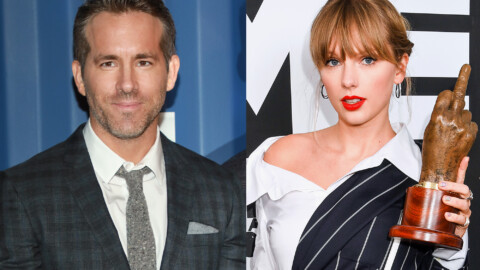NME | Music, Film, TV, Gaming & Pop Culture News

A government spokesperson has told NME that their Brexit deal plans to allow for more freedom of movement for touring artists and their crew were “rejected by the EU,” while the industry continues to call for more action to prevent “catastrophic” damage”.
- READ MORE: “It’s going to be devastating” – here’s how Brexit will screw over British touring artists
Earlier this year, a number of artists and other industry insiders told NME of the widespread concern that Brexit new rules, tariffs, carnets and restrictions could further jeopardise the £5.2billion music industry when it is safe for live shows to return – and echoed earlier calls for a special Musicians’ Passport for touring artists and crew to allow them to tour freely through Europe. Otherwise, it is feared that Brexit will create a glass ceiling for the UK’s rising and developing talent wishing to build their popularity overseas, and prove damaging to our cultural exchange.
Responding to the industry’s concerns at the time, a government spokesperson told NME: “We are working closely with the arts and culture sector to prepare for the end of the transition period and recognise the importance of touring for UK musicians.”
However in the government’s Brexit deal, which MPs voted in favour of yesterday and comes into force from tomorrow (January 1), there is nothing in place to secure free longterm working travel for artists and crew without potentially prohibitive costs.
A petition has since been launched calling on the government “to negotiate a free cultural work permit that gives us visa free travel throughout the 27 EU states for music touring professionals, bands, musicians, artists, TV and sports celebrities that tour the EU to perform shows and events and carnet exception for touring equipment”.
With backing from the likes of Biffy Clyro, Foals, Dua Lipa, Nadine Shah, The Charlatans‘ Tim Burgess and many more, the petition has since received phenomenal support and over 200,000 signatures – while music fans are also encouraged to write to their MP.
However, a government spokesperson told NME on Tuesday that their initial plans to accommodate the live music industry were were turned down by the European Union.
“Short-term visitors to the EU can continue to join business meetings, receive training and attend sporting and cultural events, amongst other permitted activities, without requiring a visa,” a spokesperson told NME. “Some Member States may allow other types of business travel visa-free, so people should check the rules of the country they are travelling to.
“The UK pushed for a more ambitious agreement with the EU on the temporary movement of business travellers, which would have covered musicians and others, but our proposals were rejected by the EU.”
They added: “We recognise that there could be some additional processes for those working in creative industries, but we have ensured that the visa application processes for longer-term business travel will be transparent to provide certainty and clarity.”

David Martin, CEO of the Featured Artists Coalition, argued that this wasn’t good enough and much more needed to be done if the industry was going to survive and thrive post-COVID.
“The key figures at the heart of this Government have spent half a decade talking up Brexit, extolling its virtues and hailing the benefits of leaving the EU in ‘making Britain global’,” he told NME. “We’re not very global if our artists and musicians can’t tour easily across our closest and most culturally aligned, neighbouring countries. It is time for the architects of Brexit to put their money where their mouths are and prove that Brexit can be a success and not a catastrophe for our industry.”
He continued:c”As it currently stands, there is no specific arrangement in place in the EU trade deal for our artists to tour in Europe, meaning that they are subject to the rules set out in each of the EU’s member states; a set of 30 different rules for each country across the EU and EEA, including the introduction of carnets.
“These rules are subject to change, with each of the 30 governments free to amend their rules unilaterally, at any point with regards to UK talent. Add to this the administrative and financial burden of touring with any equipment and we have the none of what we were promised; this is not a reduction of red tape, a removal of bureaucracy and the UK holding all of the cards, it’s the opposite – we will have lost so much.”

Martin added that while a “major portion” of many UK artists’ income comes from touring Europe, the loss would be beyond monetary and also hinder their development, education and global following.
“This isn’t just about fans in Europe getting to see their favourite British artists, it’s about UK artists being able to build a viable career; that is impossible without touring,” he said. “It’s not just about fans in the UK getting to see their favourite band, artist or DJ, it’s about our beloved live music scenes thriving, attracting the best talent, creating income and boosting our renowned and growing live music tourism industry from world famous clubs and arenas to our globally recognised festivals. It’s about giving UK artists the chance to develop their craft by sharing the stage, learning from and collaborating with talent from across the whole world.”
He added: “The UK joined the European Communities in 1973, just three years after the very first Glastonbury Festival. The world is a different place now, almost 50 years later. Touring wasn’t like it is now and nor was the live circuit. Delays at borders, refused entry, bureaucracy and carnet costs don’t make us global Britain. Narrowing the pool of incoming artists isn’t global Britain. Sucking the lifeblood out of our music industry, a key national asset and economic contributor to our economy isn’t global Britain.
Annabella Coldrick, Chief Executive of the Music Managers Forum, agreed that the new deal would impact of the UK music industry being an “outward-looking and global business,” and would hinder its progress when live gigs return later in 2021.
“The deal throws a whole lot of friction and bureaucracy into the system, and the resulting uncertainties could create havoc with touring plans,” she told NME. “The burdens for upcoming British artists, who are already running to the tightest of budgets, are particularly worrying.”
As well as arguing that the government could find a way to provide support to absorb the new additional costs, Coldrick added: “The simplest way forward would be the negotiation of a free Europe-wide Visa-free cultural work permit. Such a permit could provide the certainty that artists and their managers crave and support the existence of pan-European touring in the future. Music is such a fundamental and valuable asset to the UK, and we should be doing everything possible to ensure it remains that way. ”
Andy Lenthall is General Manager of the Production Services Association, who represent the roadies and technicians that make live music possible. He argued that as it stands, the Brexit deal would see the UK’s enviable production industry heading elsewhere, with much work lost overseas when crew are already reeling from the impact of COVID-19 on touring.
“I don’t see anywhere in there where they’ve made one jot of consideration for our industry and live entertainment touring – especially at any scale,” he told NME. “In this deal, there’s nothing in there that helps and plenty that hinders.
“You’re going to lose the movement of grassroots talent into other territories. There are bands that enjoy success more outside of the UK, and some whole genres, and they need access to their market. That’s going to become more burdensome and expensive. Not only that, but if there’s less money around, then crew and production values are an easy thing to cut. You have to a minimum amount of people to make the thing work. The work visa situation begs the question of why take crew from the UK when some in the EU might be able to do the job for less money?”

With the “friction” and cost created by the new rules, including UK touring trucks being unable to make more than two stops, will see artists and promoters either use other countries’ services or see vast swathes of the UK’s music travel, trucking and production industry moving to mainland Europe.
“We have always been the springboard for Europe where tours launch – now we’ll be where tours end,” he added. “For over 40 years, we’ve built a whole industry on freedom of movement, people and goods. If that’s compromised, then our industry is compromised – end of story. It’s really, really simple.”
“All is not lost, the work is doable – there’s just a lot to be done. This is a cultural crown jewel that you don’t know what you’ve got until it’s gone.”
Havin surpassed 100,000 signatures, the petition will now be considered for a debate in Parliament – while music fans are still being encouraged to sign it as well as write to their MP.
The post The government says Brexit touring plans were “rejected” by EU – but the music industry demands action to prevent “catastrophe” appeared first on NME | Music, Film, TV, Gaming & Pop Culture News.


